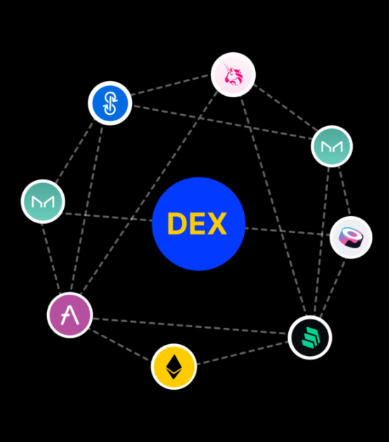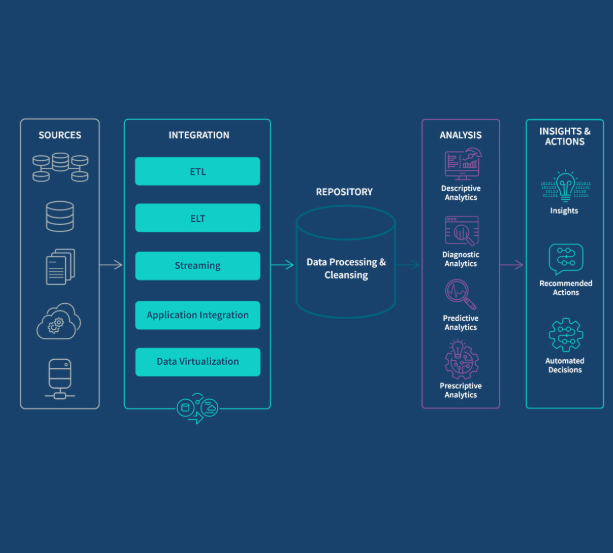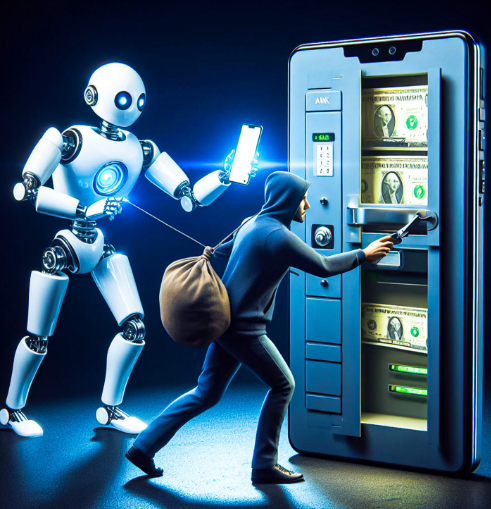
Blockchain technology is making waves in the entertainment industry, bringing transparency, decentralization, and new opportunities for content creators. From streamlining content distribution to enabling better interactions between artists and audiences, blockchain is reshaping the way entertainment content is created, managed, and consumed.
As the entertainment market continues to grow, digital piracy, inefficient royalty distribution, and slow payment systems have been major hurdles for creators. Despite the rapid expansion of the global entertainment sector, it’s estimated that creators lose billions of dollars annually due to piracy. Blockchain, with its secure, immutable ledger, provides a promising solution to these issues by promoting transparency and control for content creators.
In this post, we’ll explore the various use cases for blockchain in entertainment, its integration with other emerging technologies, and how it addresses long-standing challenges within the industry.
Blockchain in Entertainment: A New Era for Content Management
Blockchain technology offers a secure and decentralized method for recording transactions, which benefits content creators, studios, distributors, and consumers alike. This technology is transforming how rights management, content distribution, and payments are handled. By providing transparency and reducing the need for intermediaries, blockchain is giving creators more control over their work and revenue streams.
How Blockchain Integrates with Emerging Technologies
Blockchain is becoming a critical tool in the intersection of entertainment and new technologies, helping ensure digital trust, ownership, and decentralized control. Below are several ways blockchain is working with next-generation tech to change the entertainment landscape:
1. Virtual Reality (VR) and Blockchain
Blockchain enhances virtual reality by ensuring secure ownership and trade of virtual assets. Users can buy, sell, or trade items like virtual land or skins on VR platforms, with blockchain ensuring verifiable proof of ownership. Smart contracts help secure these transactions, cutting down on fraud. This combination is paving the way for virtual economies and metaverse-based entertainment experiences.
2. Blockchain and Film Industry
Blockchain is revolutionizing how films are funded, produced, and distributed. Independent filmmakers now use tokenized crowdfunding to raise capital, while smart contracts handle royalty distributions. The transparency provided by blockchain ensures that every transaction, from licensing to streaming, is securely recorded, improving financial clarity and protecting intellectual property.
3. Blockchain in Gaming
Blockchain enables decentralized economies within games where players own their in-game assets, such as characters or skins, in the form of NFTs. These assets can be sold or transferred between games. Additionally, blockchain allows game developers to create transparent monetization models, rewarding players for participation while ensuring that developers maintain control over digital property.
4. Blockchain in Esports
Esports is utilizing blockchain to ensure fairness and transparency. Blockchain securely records tournament results, player statistics, and prize distributions. Smart contracts automatically manage prize money, reducing delays and disputes. Blockchain also supports fan engagement through token systems, where fans can vote on decisions or access exclusive content, creating a more interactive experience.
Challenges in the Entertainment and Media Industry
Despite its benefits, the entertainment industry faces numerous challenges that blockchain can address:
1. Intellectual Property Infringement and Piracy
Piracy remains a significant issue, with unauthorized copying and distribution of digital media costing creators billions of dollars annually. Digital formats and the global reach of the internet make content theft easier, and enforcement is often inconsistent across borders. Blockchain can help track content across the supply chain, identifying unauthorized distribution and reducing piracy.
2. Revenue Loss Due to Intermediaries
The entertainment sector is plagued by numerous intermediaries such as record labels, streaming services, and distributors, each taking a cut of the revenue. Blockchain enables creators to bypass these intermediaries, allowing direct transactions with consumers and increasing their share of earnings.
3. Opaque Royalty Agreements
Royalties in the entertainment industry are often shrouded in complexity, leading to delays and disputes. Blockchain technology streamlines royalty distribution through smart contracts, ensuring accurate and timely payments based on real-time consumption data.
4. Inefficient and Risky Transaction Systems
Current payment systems in entertainment can be slow and vulnerable to fraud. Blockchain’s secure and transparent nature allows for real-time, low-cost payments, reducing transaction fees and the risk of fraud.
5. Limited Micropayments
Current systems aren’t optimized for small payments, making micropayments for digital content like songs or articles unprofitable. Blockchain enables efficient micropayments, allowing creators to monetize smaller content more effectively and offering fans greater flexibility in supporting their favorite artists.
How Blockchain Solves Entertainment Industry Challenges
Blockchain not only addresses the shortcomings of traditional systems but also brings about a more transparent, secure, and creator-centric ecosystem.
1. Media Supply Chain and Infringement Tracking
With blockchain, every transaction and movement of content is recorded on a secure ledger. This allows creators to track how their content is used, ensuring unauthorized distribution is quickly flagged. The transparency of blockchain strengthens digital rights enforcement, reduces piracy, and simplifies licensing workflows.
2. Smart Royalties and Streaming Payments
Blockchain automates the royalty distribution process via smart contracts, ensuring artists and rights holders receive fair payments based on real-time data. This transparency reduces the reliance on intermediaries and ensures that creators are paid promptly and accurately.
3. Improved Consumer Targeting and Data Transparency
Blockchain offers secure, permission-based access to user data, allowing content platforms to verify user behavior and engagement. This transparency enables better audience targeting and content personalization, which in turn strengthens creator-consumer relationships without the need for third-party algorithms.
4. Enhanced Security and Fraud Prevention
Blockchain’s immutable ledger creates a tamper-proof record of every transaction, preventing fraud and ensuring the authenticity of content. With blockchain, creators and consumers alike can verify the legitimacy of digital assets, reducing instances of fake views, inflated ad impressions, and unauthorized downloads.
5. Transparent Ad Metrics and Publishing Rights
Blockchain brings transparency to advertising and publishing metrics by providing real-time tracking of ad views, clicks, and engagement. This transparency ensures that creators are fairly compensated for their ad placements, while also improving media planning and campaign effectiveness.
6. Operational Efficiency
Blockchain automates many back-end processes such as licensing and payment systems, reducing overhead costs. By eliminating the need for intermediaries and accelerating payment cycles, blockchain helps entertainment businesses operate more efficiently and scale more effectively.
Popular Blockchain Use Cases in the Entertainment Industry
Blockchain applications are actively shaping business models, revenue streams, and fan engagement across the entertainment sector. Here are a few notable use cases:
1. Peer-to-Peer Content Distribution
Blockchain allows creators to bypass traditional distributors, directly selling or streaming content to fans. Using decentralized platforms, creators can license and sell their work while maintaining control over distribution and revenue. Smart contracts ensure fair usage and automated payments.
2. Streamlined Royalty Payments
By using smart contracts, blockchain enables the real-time distribution of royalties, ensuring that all creators receive accurate payments based on actual usage data. This reduces disputes and delays common in traditional royalty systems.
3. Dynamic Pricing Models for Paid Content
Blockchain enables flexible pricing models for digital content. Creators can adjust prices based on demand, user location, or access level (e.g., exclusive vs. standard). This opens up opportunities for microtransactions, benefiting both creators and consumers.
4. New Monetization Opportunities
NFTs and other blockchain-based tools offer new ways to monetize digital content. Creators can offer exclusive digital assets, such as behind-the-scenes footage or limited-edition items, while also earning revenue from resales through smart contracts.
5. Securing Digital Assets
Blockchain secures digital content by embedding ownership and usage terms directly into the content itself. This reduces piracy and ensures that creators retain control over how their work is used and distributed.
Entertainment Companies Adopting Blockchain
Several leading entertainment companies have already embraced blockchain technology:
- Warner Music Group: Partnered with Dapper Labs to create blockchain-based digital collectibles and fan engagement tools.
- Sony Music: Exploring blockchain for transparent music rights and royalty management.
- Spotify: Acquired Mediachain Labs to improve music metadata tracking and ensure fair compensation for artists.
- Ubisoft: Launched Quartz, a blockchain-based platform for in-game asset trading.
- Lionsgate: Partnered with blockchain platforms to create tokenized merchandise and digital collectibles tied to its film franchises.
Conclusion
Blockchain technology is transforming the entertainment industry by addressing longstanding challenges such as piracy, unfair revenue distribution, and opaque royalty systems. By providing creators with more control, increasing transparency, and enabling new monetization models, blockchain is setting the stage for a more efficient, decentralized future for entertainment. As the technology continues to evolve, its impact on the entertainment industry will only grow, creating new opportunities for creators and audiences alike.















































